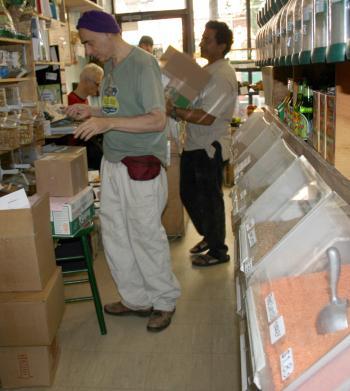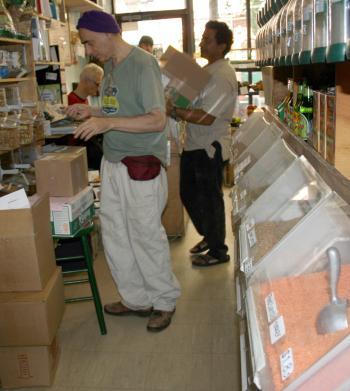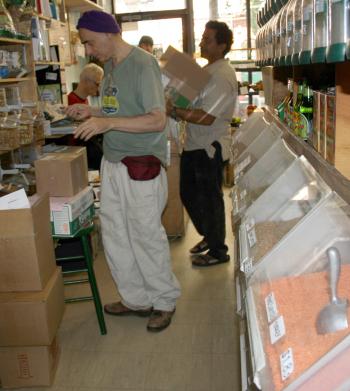Lower East Side Food Co-op Still Surviving
A food co-op in Manhattan’s lower east side is thriving despite new neighbor Whole Foods market

CO-OP LIFE STYLE: Robert Viverto (L) and Paul Abraham, members of the 4th Street Food Co-op in the East Village, work their weekly shift at the organic market, ensuring their 20 percent discount on groceries. Katy Mantyk/Epoch Times
|Updated:




